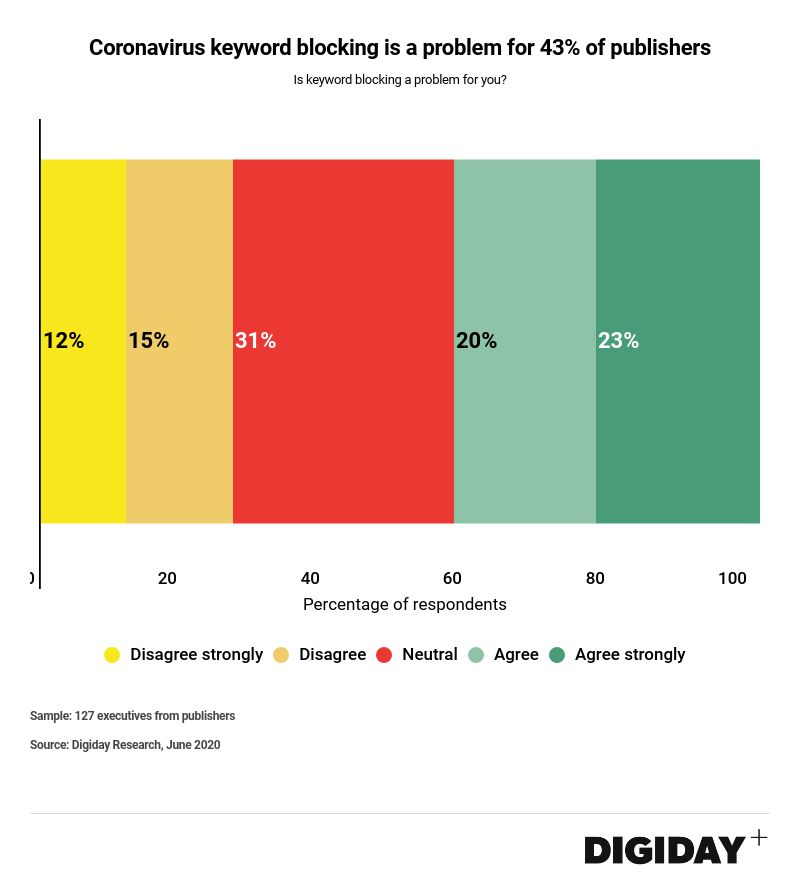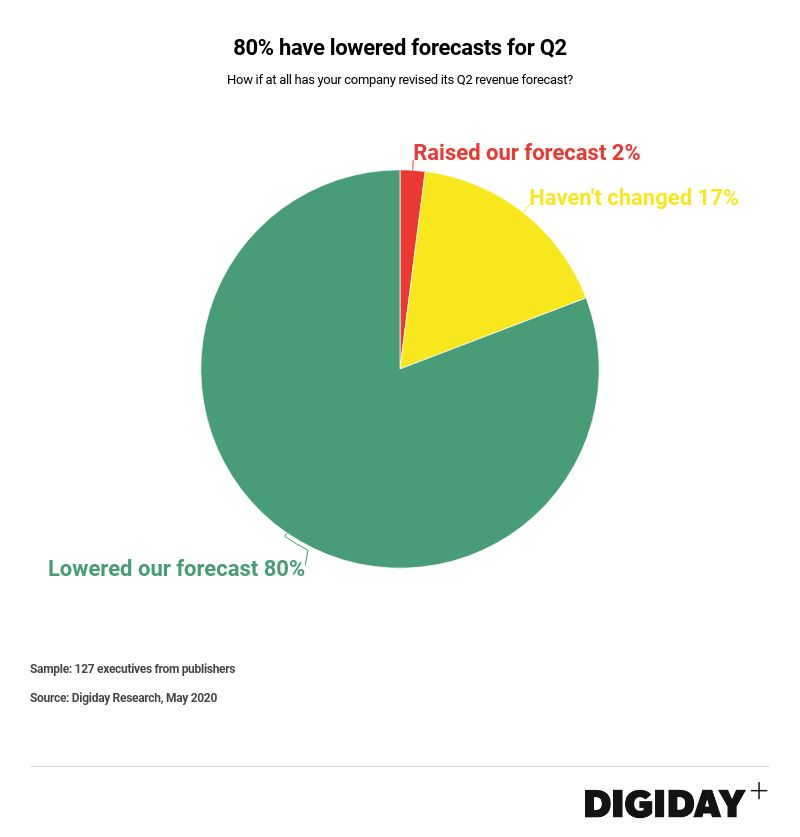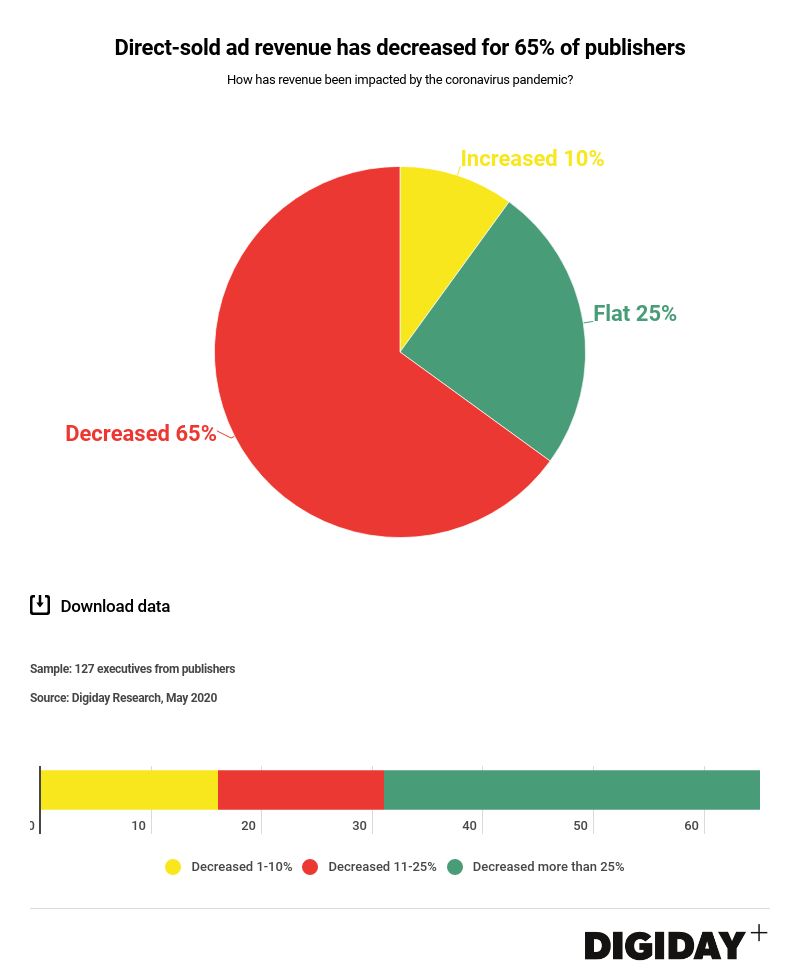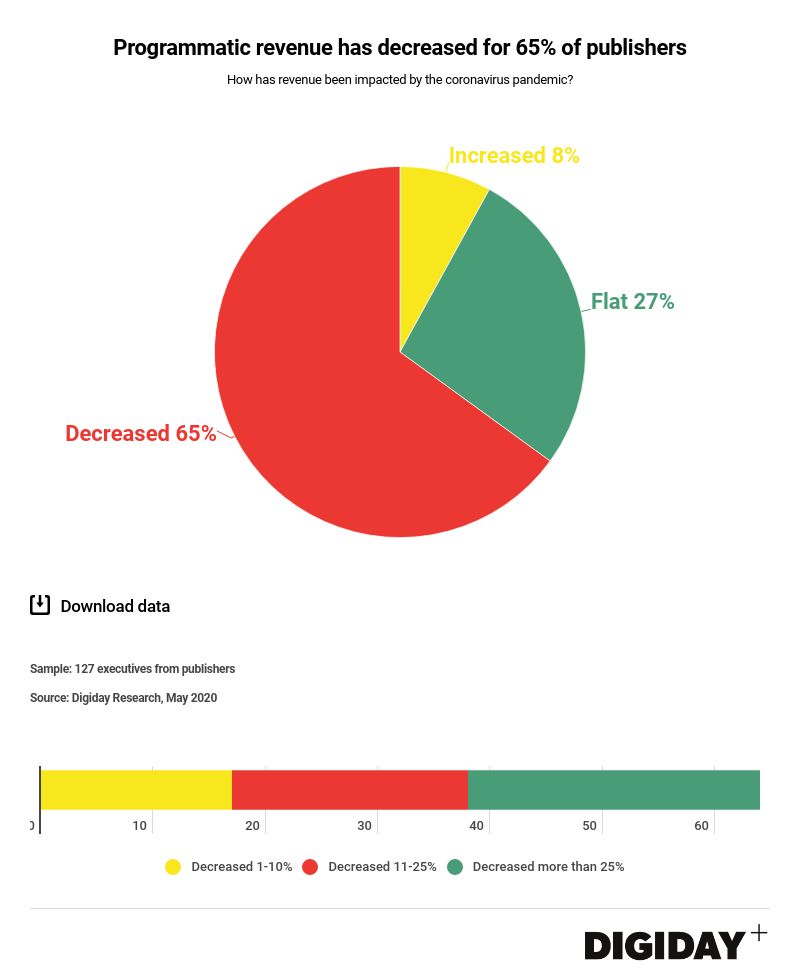Secure your place at the Digiday Publishing Summit in Vail, March 23-25
Digiday Research: Coronavirus-related keyword blocking is a problem for 43% of all publishers

This research is based on unique data collected from our proprietary audience of publisher, agency, brand and tech insiders. It’s available to Digiday+ members. More from the series →
Coronavirus- related keyword blocking has become a problem for 43% of publishers, according to a new Digiday survey of 127 publishing execs undertaken this month.
The survey found that a quarter of publishers said it had not been a problem for them.
Keyword blocking has been an issue for publishers ever since the coronavirus outbreak began. Even as many publishers have seen site-traffic grow, advertisers have been quick to add virus-related words to keyword blocklists, the idea being that this will avoid any fallout from their ads coming alongside articles about the virus, deaths and other issues.

Meanwhile, a previous survey found that 40% of brands are not advertising next to coronavirus-related news online, up slightly from the same survey conducted a month ago, when 37% said they will not buy ads alongside coronavirus-related content.
As our research has found, publisher revenues took a major hit in the first quarter, but publishers expect things to get worse in the second quarter. Only 2% of raised forecasts, 17% have kept them flat, and the vast majority — 80% — have lowered forecasts.

Our survey found that for 80% of publishers, traffic is up. For almost a quarter, it’s up more than 50% from pre-pandemic levels.
Among business lines, ad revenue was hardest hit in the first quarter, decreasing for a whopping 65% of all publishers. This included direct sold and programmatic ad revenue.


More in Media

The case for and against publisher content marketplaces
The debate isn’t whether publishers want marketplaces. It’s whether the economics support them.

Urban Outfitters shifts its influencer strategy from reach to participation
Me@UO is Urban Outfitters’ new creator program leverage micro-creators with smaller, engaged communities that are passionate about the brand.

Media Briefing: Without transparency, publishers can’t tell if Google’s Preferred Sources feature benefits them
Six months in, Google’s Preferred Sources promises loyalty-driven visibility, but leaves publishers guessing at the traffic impact.





